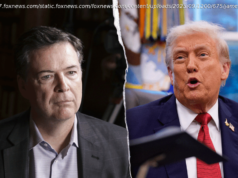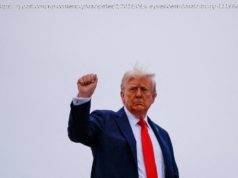The National Archives releases more than 600 new files, mostly from the CIA.
The latest batch of John F. Kennedy assassination files released by the National Archives includes information on Lee Harvey Oswald’s trip to Mexico two months before the attack in Dallas, and a hodgepodge of documents on Cuban nationals, Soviet spies and even reports on civil rights leader Martin Luther King Jr.
Among them is one that says allegations JFK assassin Lee Harvey Oswald was connected to the CIA were “totally unfounded.”
The 1975 CIA memo says a thorough search of agency records was conducted to determine whether Oswald had been used by the agency or connected with it in “any conceivable way.” The memo said the search came up empty. The memo also said there was also no indication that any other U. S. agency used Oswald as a source or for recruitment.
The material was among 676 new documents, mostly from CIA files, released by the National Archives on Friday.
The records are being made public under the President John F. Kennedy Assassination Records Collection Act that was passed by Congress and signed into law by President George Bush in 1992.
The law required the release of the documents no later than 25 years from the date of the signing, except those deemed by the president to raise national security concerns.
Last week, the National Archives released 2,800 records but the government kept around 29,000 more pending a review within 180 days.
The following day, Trump intervened to say that he would release all of the remaining documents, on a rolling basis, „for reasons of full disclosure, transparency and in order to put any and all conspiracy theories to rest.“
Among the newly released documents is one dated Nov. 23,1963, one day after the assassination in Dallas, that reports on an intercepted phone call made by Oswald in Mexico City to the Soviet embassy on Oct. 1,1963.
The call indicates Oswald visited the embassy on Sept. 28 and spoke with the embassy consul, Valeriy Kostikov, who the report identified as a member of the Soviet KGB assassination department working under cover at the Soviet embassy in Mexico City.
While noting it is „not usual“ for a KGB agent on a sensitive mission to have such overt contact with a Soviet embassy, the CIA report said Soviet intelligence procedures show that „very important agents can be met in official installations using as cover for their presence there some sort of open business.“
The FBI, according to the report, said Oswald was trying to get the embassy’s help regarding a visa to the Soviet Union.
The latest batch of documents include a mixed bag of material, ranging from background reports on Cubans, information on spy activity in the Soviet Union, and even information on CIA officer Howard Hunt, who would later become infamous for his role in the Watergate break-ins.
The report discusses Hunt’s departure from the agency as a full-time employee in 1966 and also includes a receipt for $250 for hiring him as a contract CIA worker on a special mission in the 1970s. It notes that Hunt preferred to be paid with two „sterile checks“ paid through two charity funds.
Other documents include a report titled „Communist infiltration of the Southern Christian Leadership Conference,“ the civil rights organization headed by Martin Luther King Jr.
In one 20-page FBI analysis of King, dated March 12,1968 — a month before he was assassinated — a section alleges that King was attracted to former member of the Communist Party in America. It notes that two previous aides were party members and eight others, who helped shape King’s organization in its early stages, had communist affiliations.
The analysis said that in the early 1960s, the Communist Party was trying to get a black labor coalition to further its goals in the United States. It referenced a May 1961 issue of a communist newspaper that stated, “Communists will do their utmost to strengthen and unite the Negro movement and ring it to the backing of the working people.”
The FBI said King and his organization were “made-to-order” to achieve these objectives.
The analysis includes several pages about his sexual life. One document said a black minister who attended a workshop to train ministers in February 1968 in Miami “expressed his disgust with the behind-the-scene drinking, fornication and homosexuality that went on at the conference.”
“Throughout the ensuing years and until this date, King has continued to carry on his sexual aberrations secretly while holding himself out to public view as a moral leader of religious conviction,” the FBI report said.
Contributing: Associated Press






